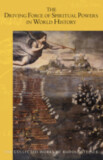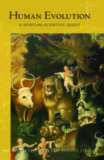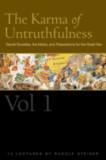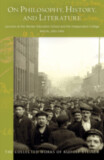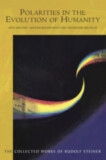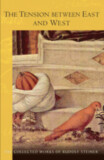Europe between East and West
In Cosmic and Human History (CW 174a)
- Publisher
Rudolf Steiner Press - ISBN 9781855846623
- Language English
- Pages 312 pp.
- Size 6" x 9.25"
12 lectures, Munich, Sept. 13, 1914 – May 4, 1918 (CW 174a)
In this wide-ranging series of lectures, Rudolf Steiner sheds new light on the spiritual background to the outbreak of World War I in Europe. Spiritual entities stand behind the various peoples of the world, he says, and describes how those beings—“folk souls”—relate to the cultural diversity of Europe, America, and the East, speaking of their unique tasks and destinies in relation to the deeper causes of the catastrophic war. Central Europe has the special mission of mediating among the Western world, the Slavic countries, and, by extension, the East. Steiner alleges that Western secret societies consciously suppressed the spiritual life of this central cultural region through malign activities. These same brotherhoods also exploited H. P. Blavatsky’s occult faculties for their own ends.
Given in Munich between 1914 and 1918—and published in English for the first time—Rudolf Steiner addresses an array of topics in these lectures, including the potential elimination of the soul through specific medicines; intelligence testing as an expression of an ahrimanic trend; the stunted condition of inner development of many people after the age of twenty-seven; the effects in the spiritual world of those who die young; how war teaches selflessness; and the significance of Michael for the appearance of Christ in the etheric. The volume also features an introduction by Terry Boardman, editorial notes and an index.
This volume is a translation from German of Mitteleuropa Zwischen Ost und West. Kosmische und Menschliche Geschichte Band VI, Rudolf Steiner Verlag, 2nd ed., 1994 (GA 174a).
Rudolf Steiner
Rudolf Steiner (b. Rudolf Joseph Lorenz Steiner, 1861–1925) was born in the small village of Kraljevec, Austro-Hungarian Empire (now in Croatia), where he grew up. As a young man, he lived in Weimar and Berlin, where he became a well-published scientific, literary, and philosophical scholar, known especially for his work with Goethe’s scientific writings. At the beginning of the twentieth century, he began to develop his early philosophical principles into an approach to systematic research into psychological and spiritual phenomena. Formally beginning his spiritual teaching career under the auspices of the Theosophical Society, Steiner came to use the term Anthroposophy (and spiritual science) for his philosophy, spiritual research, and findings. The influence of Steiner’s multifaceted genius has led to innovative and holistic approaches in medicine, various therapies, philosophy, religious renewal, Waldorf education, education for special needs, threefold economics, biodynamic agriculture, Goethean science, architecture, and the arts of drama, speech, and eurythmy. In 1924, Rudolf Steiner founded the General Anthroposophical Society, which today has branches throughout the world. He died in Dornach, Switzerland.



